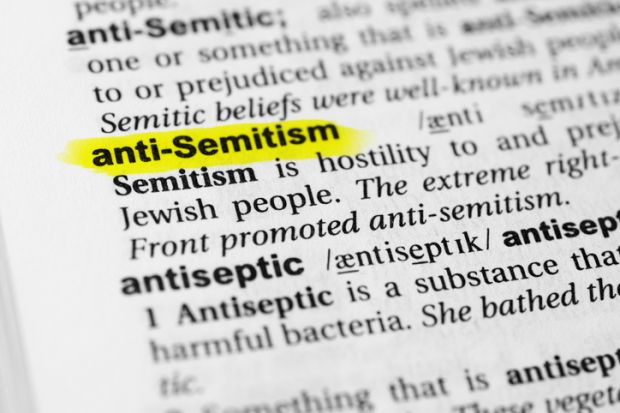An investigation by a charity that monitors antisemitism found 123 such incidents affecting Jewish students, academics and student bodies in UK universities over the past two years.
The Community Security Trust says its report, Campus Antisemitism in Britain 2018-2020, includes cases of antisemitic incidents perpetrated by students, academic staff, students’ union officials and student society officers.
Recommendations from the report include urging universities to adopt the International Holocaust Remembrance Alliance (IHRA) definition of antisemitism to “ensure that there is a common, accepted and practical standard with which to measure antisemitism and assess complaints”.
And it also says that universities “should allow third party organisations such as CST or the Union of Jewish Students to submit complaints regarding antisemitism on behalf of students. This is common practice in reporting hate crime to police or other bodies.”
Gavin Williamson, the education secretary in the Westminster government, wrote to universities earlier this year urging them to adopt the IHRA definition.
The Office for Students, the English regulator, could be asked to take regulatory action including suspending “funding streams” if universities failed to do so, he said.
“If I have not seen the overwhelming majority of institutions adopting the definition by Christmas then I will act,” Mr Williamson said.
The CST says that “the response of some universities to complaints of antisemitism was found by CST to be inconsistent and, in the worst cases, increased the harm felt by Jewish students”.
The organisation says there has been a “significant increase in university incident totals since 2018 [which] reflects a sustained drive by CST’s campus team to encourage students to report antisemitic incidents”.
Thirty-nine university antisemitic incidents recorded by CST during the last two academic years took place on campus, 33 took place off campus and 51 were online. CST says it “recorded four instances of assault across the two academic years in the study; seven in the category of damage and desecration to Jewish property; five in the category of threats; and 107 incidents of abusive behaviour”.
Mark Gardner, CST chief executive, said: “University should be an excellent experience for young people, but CST’s detailed study shows that antisemitism is a real problem for some Jewish students, mostly involving racism and ignorance from other young people, either verbally or via social media.
“The most serious cases occur where universities deny their students adequate protection, either from visiting hate speakers, or from their own politically-biased academics pushing conspiracy theories, including about British Jews, antisemitism and the Labour Party.”
James Harris, president of the Union of Jewish Students, said: “While many institutions have equality and anti-racism frameworks, these have proven to be completely inadequate when protecting Jewish students. When antisemitism does arise, Jewish students rightly expect that it will be taken seriously and dealt with effectively. I look forward to the day where this is the case at every single university.”
A Universities UK spokeswoman said: “Universities must do all they can to tackle antisemitism. We have asked all our members to consider adopting the IHRA definition of antisemitism, while recognising their duty to promote freedom of speech within the law.
“We are aware that an increasing number of universities are adopting the IHRA definition and many are considering what more they can do to ensure a zero-tolerance approach to antisemitism.
“We recently published new recommendations designed to tackle racial harassment in higher education, including antisemitism. This work builds on UUK’s “Changing the Culture” framework and a number of Jewish organisations were involved in the development of this framework.
“We are in regular contact with Jewish community leaders and student groups to ensure that universities are supported to do all they can to tackle antisemitism.”
请先注册再继续
为何要注册?
- 注册是免费的,而且十分便捷
- 注册成功后,您每月可免费阅读3篇文章
- 订阅我们的邮件
已经注册或者是已订阅?

